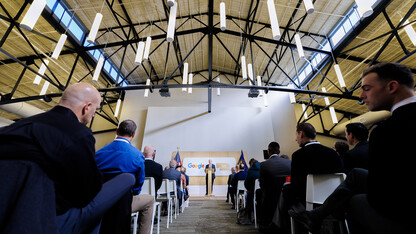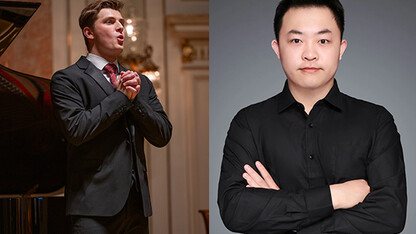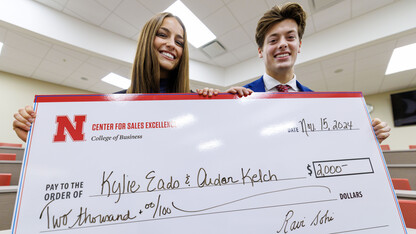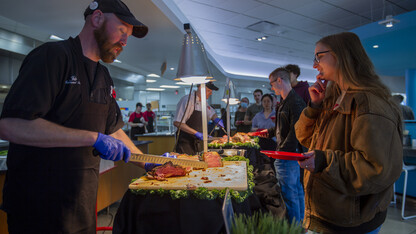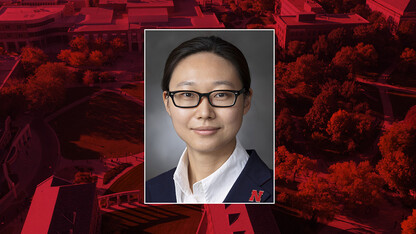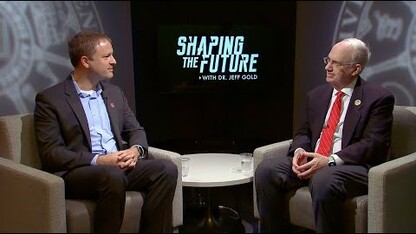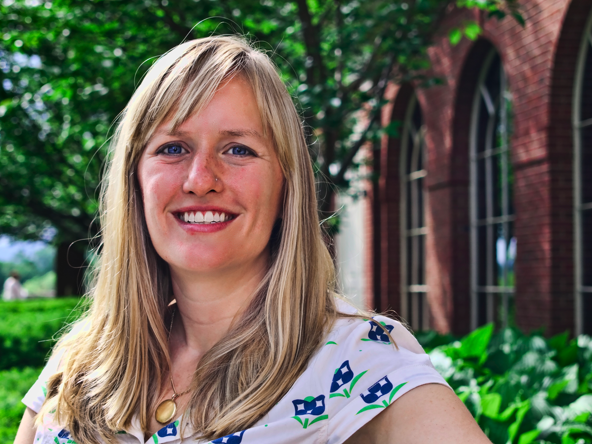
English doctoral candidate Carrie Walker will travel to Jamaica this fall to conduct a 10-month research project on a Fulbright Scholarship.
Walker’s research interests are in Africana literature, and in particular, African and Caribbean fiction written by women. In Jamaica, she will be conducting archival research to examine how Jamaican women address the status of women through letter-writing since Independence in 1962.
While based in Kingston, Jamaica, Walker will pay particular attention to letters published in the Daily Gleaner and letter collections housed at the National Library and the University of the West Indies-Mona. The Gleaner is one of Jamaica’s national newspapers.
“Because of the intimate nature of letter writing, letters offer an important glimpse into local ideas about social and political history,” Walker said. “I am interested in examining how letter writers endorse universal human rights laws but also how they challenge them. My research will investigate attitudes toward female education, women’s roles within marriage, inheritance law and mental health.” Her interest in Caribbean literature began during a women’s literature course she took as an undergraduate at St. Bonaventure University in 1997.
“Reading Jamaica Kincaid’s novel, ‘Annie John,’ at that time shifted my thinking about the Caribbean as more than a vacation destination, and it sparked my interest in reading fiction that challenged the misperceptions that many Americans hold regarding ‘exotic’ places,” she said.
Walker is working on her doctoral dissertation, which focuses on how women writers from Africa and the Caribbean use the epistolary novel - novels that include letters written between characters - to address human rights issues. With a concentration on African literature, her study has involved numerous connections to the Caribbean, and she eventually combined both interests. In Jamaica, Walker will work with Paulette Ramsay, a professor at the University of the West Indies-Mona and author of “Aunt Jen,” one of the novels analyzed in Walker’s dissertation.
For many years, Walker said she has been intrigued by the relationship between literature and social justice. “While some readers may argue that literature is merely a reflection of reality, I argue storytelling is a potent tool to remedy social inequality and advocate human rights,” Walker said.
Having just finished a year teaching in the Women’s and Gender Studies Program at Bucknell University in Lewisburg, Pa., Walker said she is focusing on getting as much written on her dissertation as possible before she leaves for Jamaica this fall. After earning her bachelor’s degree at St. Bonaventure University in New York, she moved to San Diego, where she taught high school for four years. She moved to Lewisburg for her master’s studies at Bucknell, then applied to UNL for her doctoral studies under Oyekan Owomoyela, professor of English and coordinator of African American and African studies. After he died suddenly in 2007, Maureen Honey became her adviser. Seanna Oakley and Greg Rutledge, both in the department of English, also advise her research.
While at UNL, Walker was a teaching assistant in the Department of English, and she was involved with the Transnational Feminism Group associated with the Department of Women’s and Gender Studies. She was selected to attend to the Commission on the Status of Women at the United Nations Headquarters as the UNL delegate in 2009.
The Fulbright Program, established in 1946 and funded by the U.S. Department of State, is designed to foster understanding between the United States and other countries. The U.S. Student Fulbright program gives recent graduates, graduate students and young professionals the opportunity to conduct research, study or teach in one of the 155 countries that the program operates. The Fulbright program is the flagship international education program sponsored by the U.S. government. About 8,000 grants are awarded annually, and about 1,600 of those grants are awarded to U.S. students.
Walker is UNL’s fifth Fulbright scholar chosen in 2011.
- Kelly Bartling, University Communications

